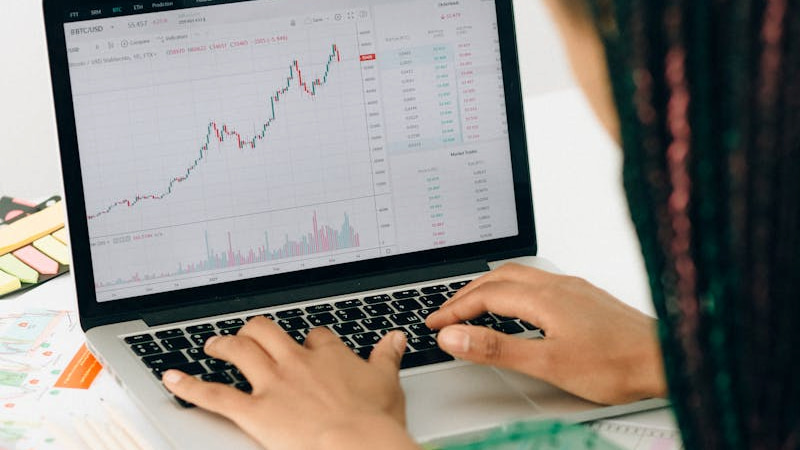Insider trading blackout periods are the market’s way of slamming the brakes on execs and employees who know too much. They are not optional. They are a firewall to stop cheats from rigging the game.
The hard truth is these periods exist because trust is fragile. Without them, insiders could dump shares before bad news or load up before a merger, leaving regular investors screwed.
Let’s dive into what blackout periods are, why they matter, and how they shape the market’s fairness.
What’s a Blackout Period in Insider Trading?
A blackout period is a no-trade zone. If you’re an insider, like a CEO, VP, or even a junior analyst with sensitive info, you’re banned from buying or selling your company’s stock during specific times. These windows usually kick in before big events, like earnings reports or mergers, when you might know something the public doesn’t.
They’re not random. Most firms lock trading two weeks before a quarter ends until 24-48 hours after earnings drop. Some extend it for major deals or audits. In 2024, 90% of S&P 500 companies enforced strict blackout rules, per SEC filings. It’s the market’s way of saying, “Sit on your hands.”
Why Do Blackout Periods Exist?
Blackout periods aren’t about bureaucracy. They’re about leveling the field. Insiders have a front-row seat to material info, like a surprise profit dip or a blockbuster acquisition. Trading on that before it’s public is insider trading, plain and simple, and it’s illegal.
The stakes are high. When a CFO sells stock days before a flop, retail investors eat the loss. Blackout periods stop that cold. They force insiders to wait until the news is out, so everyone’s playing with the same deck. A Chicago Booth friend saw his firm dodge a lawsuit because blackout rules caught a shady VP’s trade. That’s the power of a timeout.
How Do Insider Trading Blackouts Work?
It’s straightforward but strict. Companies set blackout dates in their compliance policies. If you’re an insider, you get a memo or calendar flagging when you’re locked out. Want to trade? Tough. You wait until the window opens, usually after earnings hit the wire.
Some firms go further. They pre-approve trades or limit them to narrow windows, like a week per quarter. Others use 10b5-1 plans, letting insiders schedule sales months ahead to dodge suspicion.
In 2024, 60% of execs used these plans, per Bloomberg. It’s not freedom. It’s a leash to keep things clean.
Do Blackout Periods Actually Stop Insider Trading?
They help, but they’re not bulletproof. Blackout periods cut the chance for blatant cheats, like trading a day before earnings tank. SEC data from 2024 shows firms with tight blackout rules faced 30% fewer insider trading probes than lax ones. That’s a win, but gaps remain.
Clever insiders try workarounds. They might tip friends outside the period or trade on info that’s “not quite material” yet. Others exploit gray areas, like unscheduled news. The SEC busted a tech exec last year for selling before a surprise FDA rejection, claiming it wasn’t a blackout day. Spoiler: he’s paid $2 million and banned for five years.
Why Should You Care?
You’re not an insider? You’re still in the game. Blackout periods protect your money. When insiders can’t trade on secrets, stocks reflect real value, not rigged bets. Your 401(k) stays safer, and the market hums smoother.
They also signal trust. Firms with strict blackout rules look legit, drawing more investors. A 2023 study showed companies with clear policies outperformed peers by 2% annually. Weak rules? That’s a red flag. Your cash deserves better.
What Happens If You Break the Rules?
Ignoring a blackout period is like juggling dynamite. If you trade and it smells like insider info, the SEC’s on you. Penalties start with fines, often triple your profits. A $100k gain could cost $400k, plus legal fees.
Jail’s next. Up to 7 years for big cases. A 2024 case saw a director get 18 months for selling in a blackout before a merger fell apart. Your career’s toast too. Wall Street shuns rule-breakers. You’re not just broke. You’re erased.
How to Play It Smart
Want to stay clean? Know your company’s policy. Blackout dates aren’t a suggestion—they’re law. If you’re an insider, don’t even whisper tips. The SEC loves nailing loose lips.
For investors, watch insider trades on SEC Form 4 filings. Heavy buying post-blackout? Bullish signal. Selling right after? Dig deeper. Knowledge is your edge. Use it.
Verdict
Blackout periods aren’t perfect, but they’re vital. They’re the market’s guardrail, keeping insiders from running wild. Every blocked trade saves trust, and trust fuels growth. Without it, markets stall, and we all lose.
You’re not powerless. Insiders play by rules because the system demands it. Back firms with tight policies, dodge the sketchy ones, and keep your eyes open. The market’s only fair if you make it that way. Act sharp, or pay when the next cheat slips through.

